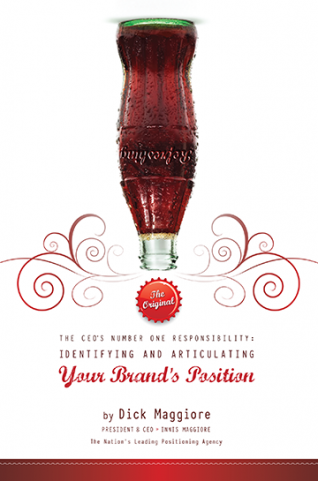Staying the course requires courage, discipline.
To become really good at whatever we do requires doing the right thing, then doing it consistently.
This applies to just about everything. Whether we are dieting, studying to earn a degree, raising children, getting in better physical shape, running a business, running a department or running our life, to succeed we must settle on the right thing and do it with consistency.
It stands to reason, then, that success in brand consistency is no different.
No business is exempt. Every business is a brand or owns one or more brands. This isn’t just about companies with consumer products, such as with Nike or Apple.
A brand needs to be connected to a simple idea. Brand consistency in communicating this idea is a must. The essence of positioning is narrowing the focus. Your brand becomes stronger when you find and, with great discipline, focus with consistency on that single idea.
When done properly, the rewards are significant.
It seems simple. The problem, however, is too many companies dilute their brands by trying to be everything for everybody.
Brand Consistency Matters
Through much research in cognitive psychology, we’ve found that the most successful brands stand for only one cohesive idea in the customer’s mind.
Jack Trout, the man who coined the term positioning, went even further. “The basic approach of positioning is not to create something new in the mind, but to manipulate what’s already up there in the mind, to re-tie the connections that already exist,” he said.
Avis was No. 2 in the car rental category and said in its advertising, “We try harder.” It was a successful campaign, not necessarily because Avis tried harder but because Avis linked itself to Hertz, the No. 1 one brand in the category. What’s Hertz to do? Try even harder? Hardly.
7Up had great difficulty standing out in the soft-drink category until it decided to link itself to the top two selling brands, Coke and Pepsi, by naming itself the Uncola. It worked. What were Coke and Pepsi to do? Take out their caramel coloring? Don’t think so.
Burger King’s most effective campaign said, “Broiling, not frying.” This was an obvious tie to its archrival, McDonald’s. Repositioning is about hanging a negative perception on your competition as a way to set up a positive perception about your brand. What was McDonald’s going to do? Throw away all its griddles? Not a chance.
Trout and Al Ries co-authored “Positioning: The Battle for the Mind” and introduced the French phrase cherchez le creneau. Translated, it means “look for the hole.” In marketing, that means finding the niche and the simple idea to fill the hole in the mind of your customer. This is the essence of positioning.
Tesla did it with electric cars, Goodyear with tires, Google with search, Kleenex with tissue, FedEx with overnight delivery and Skype with online phone.
Finding the hole isn’t a simple task. What might be even more difficult, once the idea is found, is to stay in the lane.
In fact, staying focused is often where problems arise. It is where the discipline of consistency is tested every day. It takes great discipline — sometimes, even sacrifice — to stick with the idea.
There will be all kinds of temptations to fiddle with products or services that do not align with the idea. There will be temptations to merge or acquire another company whose products and services don’t align with the idea. There will be temptations, especially with public companies, to increase revenue, in any way possible, unrealistically every quarter.
Such short-term reaching is counter to longer-term brand-building.
Brand consistency requires a lot of courage and discipline. Consistency builds trust. Consistency builds brands. Trust is created over time. Brands are created over time. Consistency is the glue.
Know the idea your brand stands for and be consistent in communicating it.



